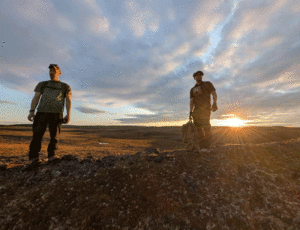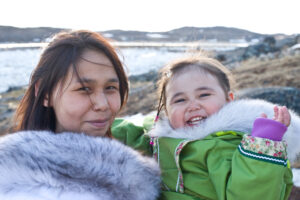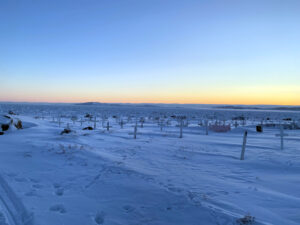A Consultant Looks at Church Planting
In our last issue of the magazine, we looked at the ins and outs of literacy, the training, the software, the blessings of technology and some of the stories about learning to read. Now let’s take a look at what goes into what we term a church plant. What all is involved in helping a missionary team plant a church? Ethnos exists to see “A Thriving Church for Every People.” Part of getting to a place of being a thriving church is the ministry of a church planting and development consultant like Barry Spor.
The main thing that a consultant is looking for is the spiritual growth not only of individual believers but also of the church as a whole.
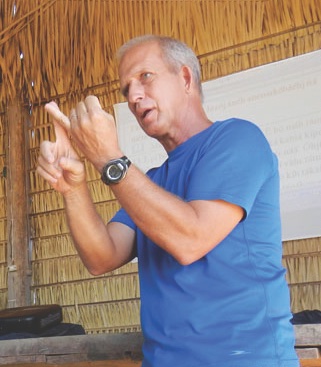
Barry Spor
Who Is Barry?
There is one gentleman whom I met back when I was a teen. His name is Barry Spor. He is one of many church planting consultants. Here is his story, and it explains why he became a consultant.
“I went into New Tribes Mission Bible School in Waukesha, Wisconsin, right out of high school in 1978. I next attended missions training beginning in the winter of 1979 in Durant, Mississippi, where I met and later married my wife, Denise. We did language school next and then arrived in Colombia in December 1982, expecting our first child.
“After finishing Equipping 2 (e2), national language Spanish study, we and another family formed the Guanano team. Wycliffe Bible Translators sponsored us in, having already translated the New Testament along with many other materials. After an intense season of Equipping 3 (e3), Guanano culture and language study, I began another intense season of translating Old Testament portions to teach from and Bible lesson development. Then in 1994, we started teaching the evangelistic Bible lessons. After nine months, there were six who declared their faith in Jesus’ death and resurrection for them! The Guanano church was born! Then came the years of discipling those believers.
“We had just begun discipleship when, because of personal danger to us, we had to abandon our homes and start over hundreds of miles to the southeast in Brazil. While building our new homes, we began another evangelistic teaching time, and amazingly, a second church was born in 2002 in that small town. Discipleship of the Guanano believers in both the Brazilian and Colombian churches has been bumpy with a jagged line of growth.”
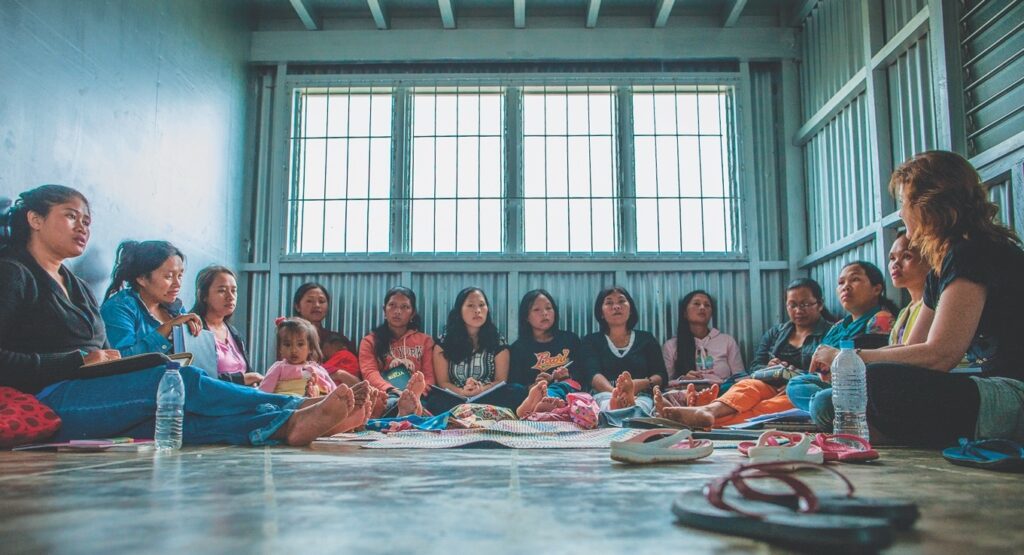
What Does a Consultant Do?
I asked Barry when he had been asked to consider being a consultant. Recognizing that he had already been doing a church plant in 1994-95, he began training as a church planting and development consultant (hereafter CP&D consultant or simply CP consultant) as early as the late 1990s.
As to the actual training, Barry continued, “Wayne Gibson was our team’s church planting and development consultant, and he took me under his wing and included me in consulting some other works there in Colombia. Then I worked off that and what God had taught me in the Guanano church development in which we were still working to begin consulting other works in West Brazil. With the goal of seeing maturing churches in different stages of growth, I visit many teams across this area of the country. I have also been a part of consulting in five other Latin American countries as well as Senegal and Mozambique.”
Never having been in a location that needed a consultant, I wondered what a consultant would look for when consulting with a church planting team. One of the main things that a consultant is looking for is the spiritual growth not only of individual believers but also of the church as a whole.
The missionaries that are working in that church plant are presented with questions by their consultants that will help indicate the believers’ growth. Are they babies or children or young adults in Jesus? The church planting team will be asked about the Bible teaching. Are they teaching Bible lessons aimed at new believers or at maturing believers? The consultant will also try to guide the church planting team to be on the lookout for men and women taking spiritual interest in others, in the teaching and witnessing.
Another guidepost that the consultant is concerned about is Bible translation progress. There are preset goals to work towards so that there will be Scriptures to teach from. That in turn aids in the spiritual growth of the believers. He will also trust God to guide the team to look at Bible lesson adaptation progress. He will also ask questions to find out about the believers’ literacy levels. The end goal is that believers will be able to read for their personal devotions and maybe become future Bible teachers with the ability to read the Word fluently.
The CP consultant also makes sure that, before he leaves the church planting team, they have agreed to do certain jobs for that year that will build towards a maturing church in the future.
A third facet that a consultant will be aware of is the spiritual health of the missionaries as well as their family needs on multiple levels. Sometimes the consultant becomes a biblical counselor for the missionaries when needs are evident. He looks for and tries to stimulate their faith in God for all the “impossibilities” that church development brings.
All the CP consultants have a number of principles that they are to follow in their consultations. Recognizing that every church plant will present different challenges, the consultants use what they have experienced as well as sharing with other CP consultants, learning from each other, but keeping those guiding principles in mind. Attending workshops that are intentionally designed for the issues they face, are a big help in sharpening their skills so they can help guide the missionary and see the new church begin to thrive.
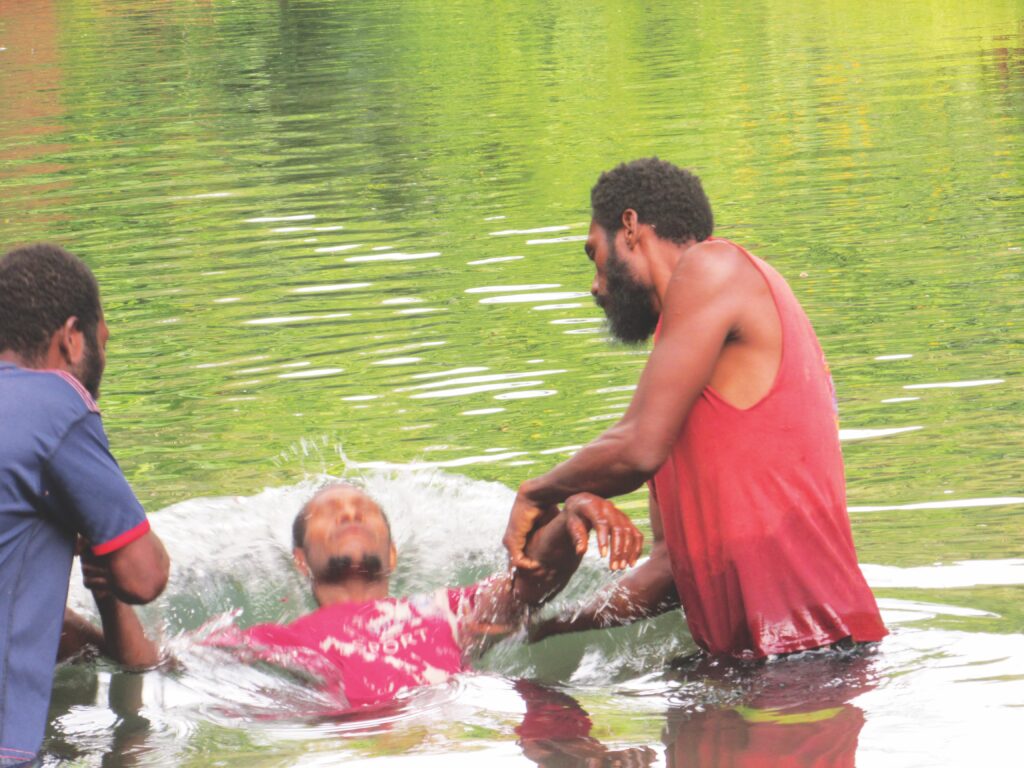
The Consultant will look for men and women taking spiritual interest in others and in teaching and witnessing.
On some fields, the CP consultant also checks and gives guidance as teams adapt their people group’s Bible lesson set. On other fields though, the translation consultants do that area of consulting. (The September magazine will talk about translation consultants — be on the lookout for that!)
I asked Barry what his consultant schedule looks like normally. He travels to eight to 10 different church plants each year. In fellowship with each team, he sets the schedule, letting the different teams know when he is planning to go for a consultation with them.
Thinking of the church planting teams, I asked him if the wives of consultants normally go with them. He said, “Early on I went by myself. But the women in the jungle asked for Denise to come. Once I began to bring her to the different works on the consult trips, the teams liked it a lot. It adds another dimension to consulting that is huge! So yes, it is highly recommended.”
Will every church plant turn out the same? Obviously not. Each people group is going to be distinct from other groups. But the gospel changes people, brings new life, gives us new brothers and sisters in Christ.
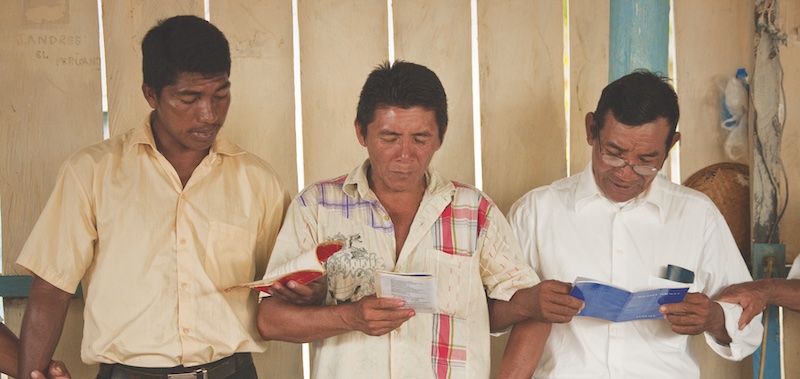
Ethnos exists to see A Thriving Church for Every People.
The following is a story of one such people group. This takes place in Papua New Guinea and is told by a friend of the missionaries who had planted the church with the help and guidance of their CP consultants.
I recently travelled with a team to Papua New Guinea (PNG) on a work trip to assist the NTM-PNG team working among the Pei tribe: the Joneses, Reeses and Candace Swift. We spent time primarily with the Joneses, both at the NTM-PNG Sepik Valley base in Wewak as well as on-site in “Peiland,” with the people group. The following is an impression based on the stories of some of the new believers in the budding Pei church.
We were sitting in the courtyard of the Boutique, which is host to a nice restaurant in Wewak, eating lunch with Chris Jones, who, with his wife, Evie, and family, works among the Pei people group on a river in the Sepik Valley region of Papua New Guinea. The Boutique is a hotel with an outdoor saltwater pool you can swim in while you wait for your overcooked crocodile skewer to arrive, enveloped by a bed of rice. Evie was at home making dinner preparations, but Jensen (the Joneses’ 6-year-old girl) was with us, and having swum in the pool, she was talking to those of us who had gathered for lunch about how she swims in the river back in Peiland, but “not without a life jacket on.” Never one to require a follow-up question, she proceeded to tell the story of a little girl from the Pei tribe who had gotten caught in something — no one fully knows what happened — and drowned in that river. One of the team members tried to revive her using CPR but was unable to do so. The girl, whose name is Teslyn, was about 10 years old when she disappeared below the waters.
This occurred a year or two before the team was able to present the gospel in the spring of 2020 to the Pei people.
Jensen knew the girl, but Jensen was so young when it happened and their age difference so great that the impact was lessened by the relative nature of time. Even so, after finishing her lunch and jumping back in the pool, she turned back to look at us and said to Chris, “Dad, do people go to hell if they don’t know Jesus?”
Hearing this, I didn’t initially make the connection between what Jensen had shared with us earlier and her question in the pool, since we’d had moved on to other topics after Jensen had finished her story. But Chris knew what was going on in his daughter’s mind and wisely responded by saying it was a good question and one they could talk about together at another time.
Jensen had been making connections that were related to the timing of the little girl’s death and the more recent presentation of the gospel by the NTM-PNG team.
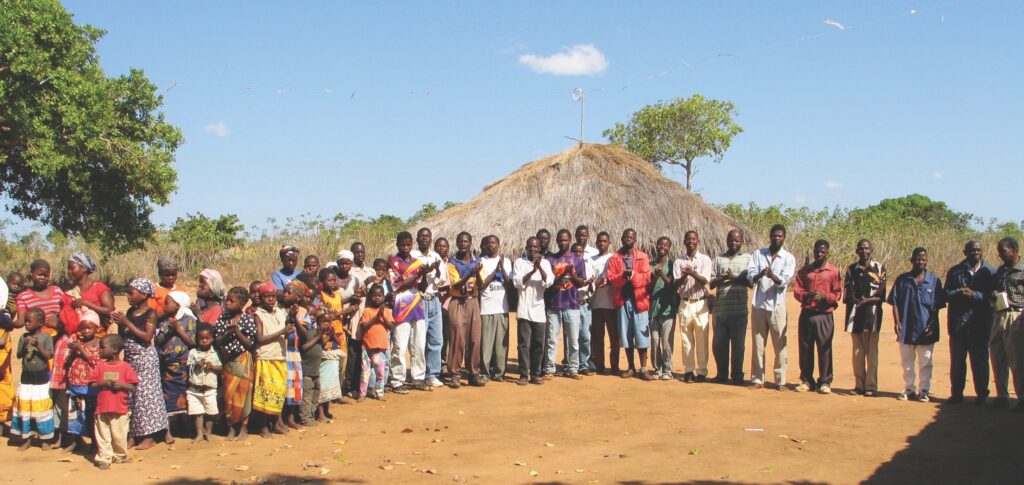
So many things have to take place before gospel presentation teachings happen, and it all starts in some ways you might not expect.
You may be wondering how a team comes to know and enter into a relationship with the people group they become a part of. After all, you can’t just barge in and present the gospel and rationally expect to have any kind of positive impact, much less set up a house in the middle of a people group without some kind of relational connection. What happened in regard to the Pei people group is typical of NTM-PNG work in Papua New Guinea, so I’ll share it in brief detail.
Tokas is the wife of a man named Erik who initially wrote to the mission asking them to send someone to give them God’s Talk — which basically entails all the work of a team coming and learning the language, creating an alphabet, developing a literacy program, teaching them to read and write, translating the Bible and so forth that is typical for this region. You must resist the temptation to read too many romantic notions into a request like this, however. Recall that the people who send these letters don’t usually have any true exposure to the gospel or the impact it makes on a people, except for perhaps the superficial, often material, benefits that follow. So, they usually have a whole host of reasons and motivations that compel them to send a letter like this to NTM-PNG, often repeatedly.
As in almost any nation where the gospel has spread, a form of the health, wealth and prosperity gospel that is predominant in the cities of PNG finds expression in material-centred, cargo cult-like beliefs among the various remote people groups. A people group has likely encountered this in some form already and may be motivated by the blessings such a “gospel” entails. At the level of their relations with other people groups, they may also be motivated by the status of having a team of missions workers among them or being able to speak and read the national trade language, Tok Pisin, rather than simply what they see as their backwater tribal language. Only God knows to what degree they are asking, “What must I do to be saved?” in sending their letters.
Tokas’ husband, Erik, never met the Joneses and their team. Many years after that first letter he sent to the mission, Erik’s efforts finally paid off. But he died two years before the team could present the gospel, being afflicted with the same genetic malady that he has passed on to his children.
But Tokas, his wife, is a believer among the Pei people group. She is spunky, and, as you’ll soon discover, she has joy — but not of the cost-free variety that belongs to this world.
Erik and Tokas had several children together, among them: Nancy, Chris, Enson and Rose. At least three of them have a genetic disorder and … are crippled. One of them is a guy named Enson. Another believer is Enson’s brother, also named Chris. Chris walks around the village [unsteadily], but this is just a symptom of the degradation of his nerves.
For all that, their father Erik also passed something else onto the children: of all the families in Pei, perhaps no other was more active in helping the team get acclimated to the culture and language of the Pei people than that of Erik and Tokas.
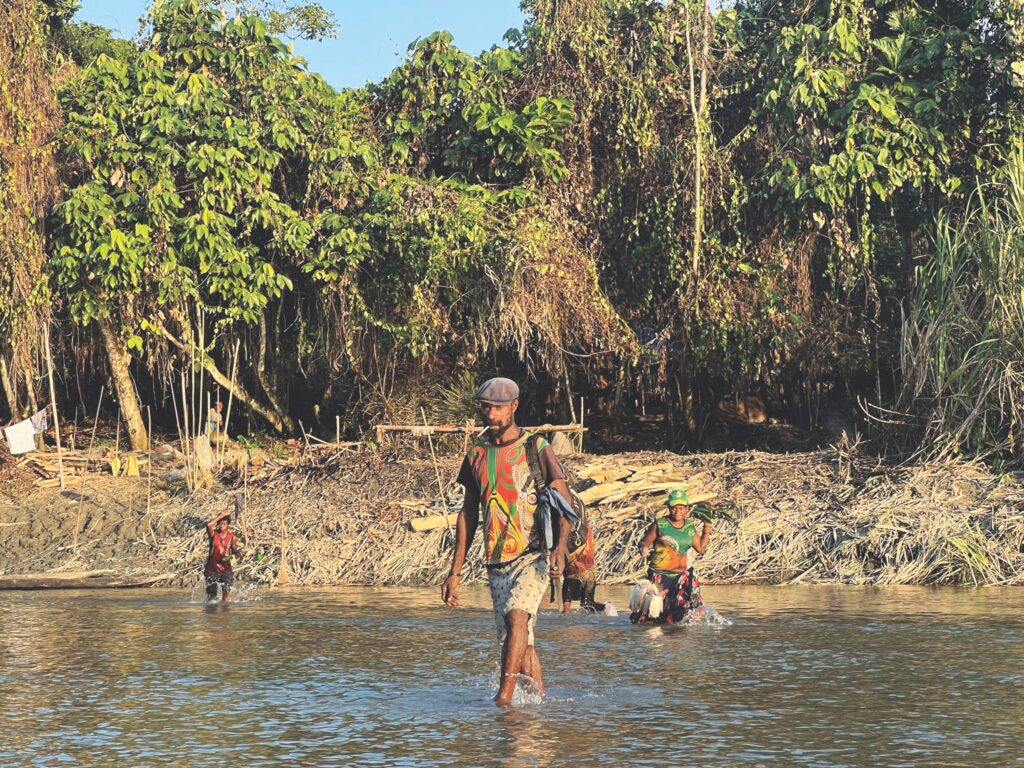
Rose is another child of theirs who clearly suffered from the condition. Several months ago, the team sent supporters back home a video which featured a few seconds of Candace (one of the NTM-PNG team members) carrying Rose on her back to a house. While I was working on Candace’s house, I noticed a wheeled cart that is also likely used for this purpose, but it can’t be used to take someone up and down the narrow log stairs leading into the elevated Pei homes, so they must be carried. Before the degenerative disorder took over her body, Rose was instrumental in teaching the women on the team how to speak Pei. She was about 10 years old when the team arrived. They tell stories of swimming with Rose in the river where she would frequently point to the grass or a butterfly or some other object and patiently repeat the name in Pei until they could say it well for themselves.
Both Rose and Enson became believers when the gospel was presented through the Creation to Christ teaching that the team put together in the native tongue. … Justin Rees (one of their co-workers) confirmed Rose’s profession of faith, and she was among the first believers to be baptized in the river in 2021. Chris later told me how ashamed she was to have to be carried into those muddy waters of baptism, but not long afterward she was resurrected in glory, raised to new life.
Rose was the first confirmed believer among the Pei people to die in the Lord.
Rose passed away back in April of 2022, and the team was really saddened over her death. The believers in Pei are really solid in regard to the resurrection, and the team was busy with helping them figure out how they would express that hope. Nevertheless, it surprised the team, because in the midst of all that goes into caring for several new believers at once, they hadn’t given much thought in regard to the “new customs” that they as a “new clan” should practice when someone in their clan passes through death to life.
They held a celebration for Rose with her mother, Tokas, and the rest of “Yawe’s clan,” and it was really encouraging for all the new believers to see that they will not walk that valley of death alone. Rose’s brother, Enson, who has the same condition, likely only has a few years left. It was tough for him (and for the team to watch him) go through all this, because he knows that this will soon be his end, his treacherous, thorny path through the bush to a new beginning.
Yet, both he and Tokas are radiant believers. You can see it when you look at their faces. On our boat ride into Pei, we met up with several Pei people who had been harvesting sago pulp and catching fish at the mouth of another river, just where it enters the Sepik (about two hours from the village by motorboat). Tokas and another woman waded into the river with the others and were the first to greet Chris, giving him the biggest, wettest hugs he’d received in not a few days.
See God’s faithfulness in this 5 minute video about Erik and Toka’s family.
Teslyn, the little girl whose story Jensen told at the Boutique, was the baby daughter of Tokas.
You may wonder as I do at the strange and bitter providence of God in ordering things like this as he does. When I first heard of it, I had to step away for a moment just to take it all in. … Perplexities abound.
Personally, I wonder at them, and though I press against them, I know that I’m no match for mysteries of this magnitude. Sin is absolutely hideous, relentless and unfeelingly cruel; I hate it — to the depths of my soul. The curse of God is real and is denied at our everlasting peril; and God is so good, and He does good for those who love Him. Through her many struggles, Tokas has grasped this much, and she is rich with joy. Her Saviour loves her, and she knows it; she has held His hand in the discovery that neither the death of a husband nor the loss of two daughters nor the infirmities of all in the family can ever separate her from His love. What more do you really need to know if you’ve gained that much through our heavenly tutors, that is, the trials of this life?
“But you are a chosen race, a royal priesthood, a holy nation, a people for his own possession, that you may proclaim the excellencies of him who called you out of darkness into his marvelous light. Once you were not a people, but now you are God’s people; once you had not received mercy, but now you have received mercy.” 1 Peter 2:9-10
— By Joshua Beall
(Joshua Beall recorded his impressions while he and a couple of friends were sent to assist the NTM-PNG Pei team during the summer.)


